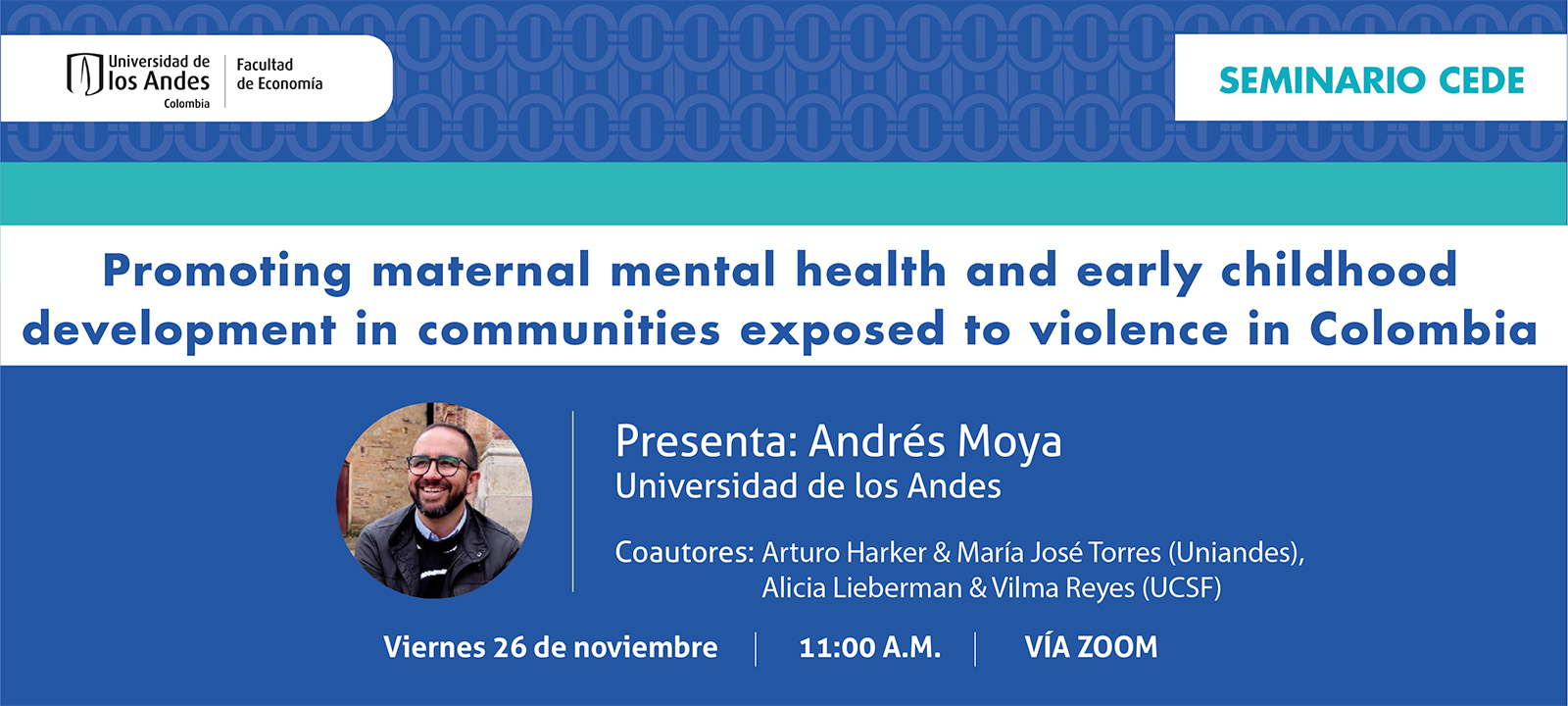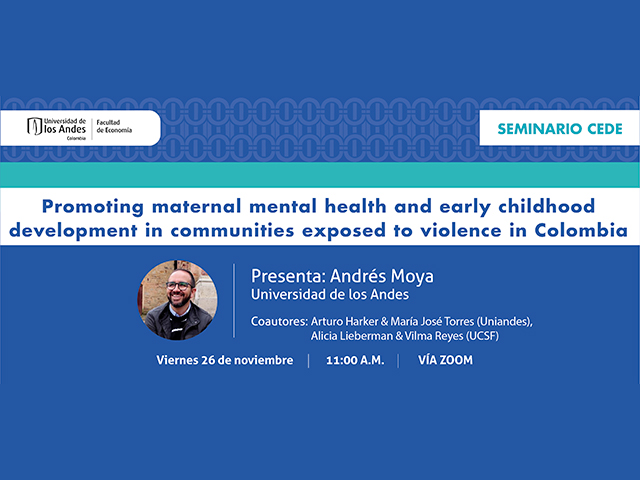Seminario CEDE - Andrés Moya

Protecting caregivers and children from effects of violence, toxic stress, and deficits in maternal care is a key challenge in fragile and conflict-affected settings. In this paper we report the results from a randomized trial of Semillas de Apego, a community-based psychosocial model for mothers of young children among families affected by violence and forced displacement. The model aims to promote maternal mental health as an outcome itself but also as a pathway to foster the healthy child-mother emotional bonds and early childhood development. We implemented the model in Tumaco, Colombia a municipality torn by conflict and forced displacement and randomized the model across 18 Early Childhood Development Centers that serve vulnerable communities. Over 4 sequential cohorts, 1,372 caregivers participated in the evaluation, with 714 assigned to the treatment group and 662 to control. 83 percent of the participants had been directly victimized while 57 percent had been forcefully displaced by violence. Group-sessions were led by community members who did not have formal training or experience in psychosocial models but who were trained and supervised for this purpose. At the 8-month follow-up, we find positive impacts on the three core dimensions of the model: improvements of 0.14 standard deviations (sd) in a maternal mental health index; 0.24 sd in an index of child-mother interactions, and 0.19 sd in an early childhood development index. Despite this progress, we also find that the pandemic had a negative toll on maternal mental health and parenting stress regardless of the treatment status. Our findings speak to the need and feasibility of implementing quality psychosocial programs in fragile and conflict-affected settings but also on the importance of designing comprehensive strategies that address the different social and economic determinants of mental health.

